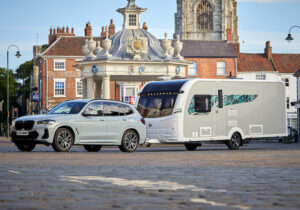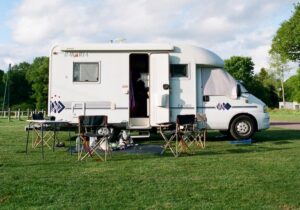Caravan site operator Tranquil Parks has made a significant move to reduce emissions at a number of its locations.
All of the maintenance kit and personal vehicles used at the Briarfields Motel and Touring Park in Gloucestershire are now fully electric.
That means mowers, strimmers, leaf blowers and chainsaws are no longer powered by petrol or other emissions-producing fuels.
Instead, the equipment is charged through the night using electricity produced by wind turbines or nuclear sources.
Scott Sanderson, owner of Briarfields, said: “This has huge benefits for our guests and the environment. For our guests there is a huge reduction in noise levels around the park and no emissions whatsoever.”
Instead, he said, you’ll just hear the noise of the blades and the smell of freshly cut grass.
Bath Chew Valley Caravan Park, which is also within the Tranquil Parks network, has also invested in the latest generation of rechargeable electric ground care tools.
They will be powered using off-peak green energy and boost the site’s eco credentials, which already includes a solar array.
These panels are responsible for generating up to 25 per cent of the energy used by the park during the summer months.
Despite this, park owner Keith Betton said they’d like to go further in making improvements to minimise the impact on the environment.
Bath Chew Valley Caravan Park has earned and retained its David Bellamy Gold conservation award for more than a decade.
Situated in the Mendip Hills Area of Outstanding Natural Beauty, visitors can help to protect the countryside as well as enjoying everything it has to offer.
Tranquil Parks is a membership organisation with 43 independently-owned caravan parks within its network. All of the sites are child-free and located in peaceful areas.
Four new sites have been added to the Tranquil Parks offering this year:
- Wilson House Holiday Park in Lancashire
- Keal Lodge Caravan Park in Lincolnshire
- Trethem Mill Touring Park in Cornwall
- York Naburn Lock Caravan Park in Yorkshire




